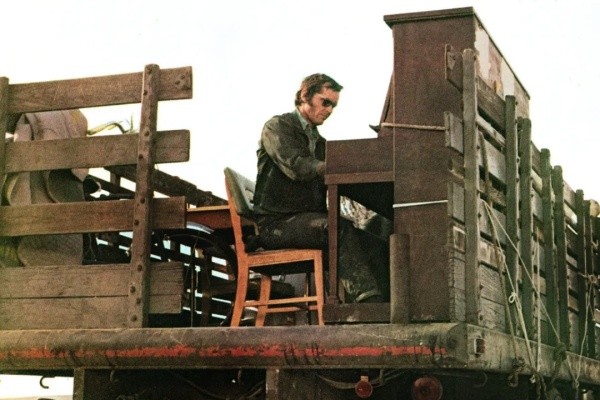Although Bong Joon-ho has made more formidable pictures, this razor-sharp treatise on social class differences in South Korea shocks and entertains in equal measure.
Dir. Bong Joon-ho
2019 | South Korea | Drama | 132 mins | 2.35:1 | Korean
M18 (passed clean) for language, some violence and sexual content
Cast: Song Kang-ho, Lee Sun-kyun, Jo Yeo-jeong, Choi Woo-sik, Jang Hye-jin, Park So-dam, Lee Jeong-eun
Plot: All unemployed, Ki-taek’s family takes peculiar interest in the wealthy and glamorous Parks for their livelihood until they get entangled in an unexpected incident.
Awards: Won Palme d’Or (Cannes); Won 4 Oscars – Best Picture, Best International Feature Film, Best Director, Best Original Screenplay, & Nom. for 2 Oscars – Best Film Editing, Best Production Design
International Sales: CJ Entertainment
Singapore Distributor: Clover Films & Golden Village Pictures
Accessibility Index
Subject Matter: Moderate
Narrative Style: Complex
Pace: Normal
Audience Type: Slightly Mainstream

(Reviewed in theatres)
Spoilers: No
Winning the Cannes Palme d’Or is a huge honour for any filmmaker, and being the first South Korean director to do so, Bong Joon-ho should be proud of this achievement.
Having been a mainstay since the 2000s, Bong is arguably the country’s most recognisable big-name filmmaker in the West, alongside maybe Park Chan-wook, whose Oldboy (2003) continues to draw younger audiences to discover post-2000s Korean cinema at its finest.
Being a huge fan of Bong, I was certainly excited to finally be able to see Parasite, which I think is one of the year’s great offerings, though it is not quite the high watermark that its universal praise and accolades seem to suggest.
For the record, I feel the likes of Memories of Murder (2003) and Mother (2009) are more formidable pictures of his, but Parasite can be said to be a return to form after the slightly underwhelming Okja (2017).
A treatise on social class differences that is both razor-sharp and explicitly portrayed, Parasite however doesn’t quite find the shades of grey or nuances in storytelling in a narrative peppered with one too many an inflection point.
According to Bong Joon-ho, the wide aspect ratio of 2.35:1 was chosen to capture large family groups in a single frame.
But Bong’s strong control over how the plotting and mise-en-scene dovetail efficiently with its thematic preoccupations means that at the very least Parasite does toy with cinematic ideas of misdirection, composition and tonal qualities quite compellingly. There is an extraordinary sequence involving a deluge of rain/sewage water that must be seen.
It is an ambitious film inasmuch as it tries to say a lot about the ills of society—particularly the psychological implications of having (a lack of) money—by exactly saying a hell lot about these unbridgeable and contemptuous social gaps between the ultra-rich and the devastatingly poor.
The ensemble cast deliver good work when it matters, headlined by Song Kang-ho who plays Ki-taek, the patriarch of a struggling, unemployed family. But my favourite performance has got to be Jo Yeo-jeong’s, who plays the wife of the wealthy Mr. Park with a mix of politeness and aloofness.
In a film about social class differences, it is not surprising that the bulk of Parasite centers on the relationship between the two abovementioned families. But Bong has a clever way with his plotting, so if you think you have figured out where the narrative is going, he proceeds to hit you with the metaphorical rock.
Grade: A-
Trailer:
Music:












[…] Apart from the solid ensemble cast, The Farewell is a showcase for Wang’s complete mastery of tone. (There are two films this year that have impressed me so far with its specific and precise tonal control, the other being Bong Joon-ho’s Parasite.) […]
LikeLike
[…] is a different kind of Almodovar that I hope to see more of. It will likely give Bong Joon-ho’s Parasite (2019) a good run for its money in the Oscar race for Best International Feature in 2020, assuming […]
LikeLike
You should add the MPAA descriptor to the review like you usually do for other ratings now that they have rated this. (language, some violence and sexual content) Loved this film, by the way.
LikeLiked by 1 person
Great, thanks – MPAA description is so much better
LikeLike
[…] Parasite (South Korea) – WW […]
LikeLike
[…] Parasite – DH […]
LikeLike
[…] Parasite – DH […]
LikeLike
[…] Supporting Actress – Jo Yeo-jeong, Lee Jeung-eun, Jang Hye-jin & Park So-dam (PARASITE) for their collective contributions to making the film work so […]
LikeLike
[…] that she stays in with her wealthy husband, reminds vividly of that house in Bong Joon-ho’s Parasite (2019), where class division was rendered […]
LikeLike
[…] Poland’s Corpus Christi managed to get into the top five, alongside the likes of eventual winner Parasite, Pain and Glory, Honeyland and Les […]
LikeLike
[…] warfare, and Franco takes it to its violent extreme, much more radical than, say, Bong Joon-ho’s Parasite (2019), which would make a good thematic companion […]
LikeLike
Another great review. Absolutely agree with everything you said but I would also up the rating. I believe this is a flawless masterpiece and quite simply one of the greatest foreign films ever made. Bong Joon-ho beautifully captures the class disparities which permeate Korea. Having grown up in Pakistan where social class determines destinies of individuals, I related to it deeply. Here’s why I loved the film:
“Parasite” (2019)- Movie Review – The Film Buff (huilahimovie.reviews)
LikeLiked by 1 person